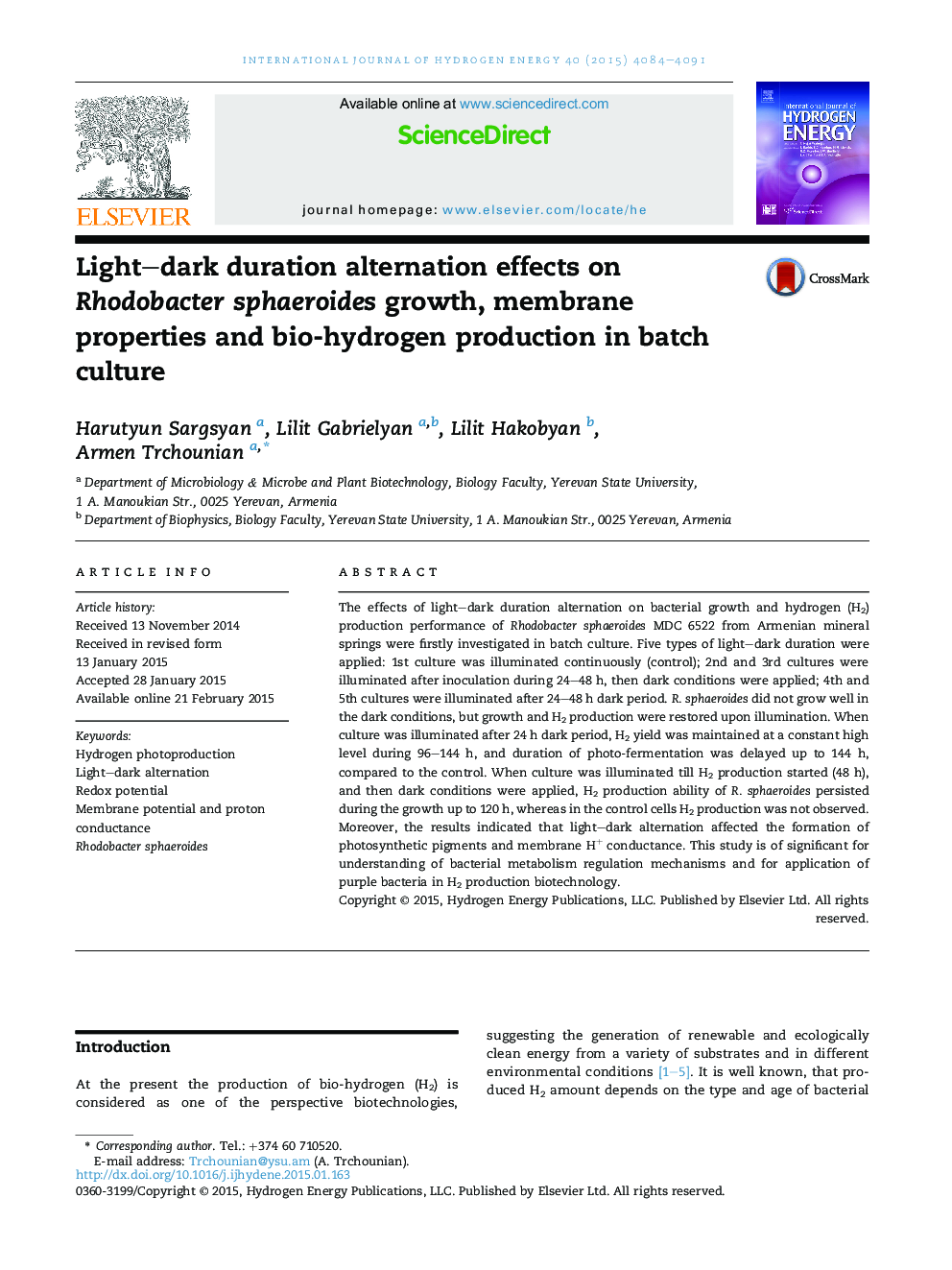| Article ID | Journal | Published Year | Pages | File Type |
|---|---|---|---|---|
| 7715923 | International Journal of Hydrogen Energy | 2015 | 8 Pages |
Abstract
The effects of light-dark duration alternation on bacterial growth and hydrogen (H2) production performance of Rhodobacter sphaeroides MDC 6522 from Armenian mineral springs were firstly investigated in batch culture. Five types of light-dark duration were applied: 1st culture was illuminated continuously (control); 2nd and 3rd cultures were illuminated after inoculation during 24-48Â h, then dark conditions were applied; 4th and 5th cultures were illuminated after 24-48Â h dark period. R. sphaeroides did not grow well in the dark conditions, but growth and H2 production were restored upon illumination. When culture was illuminated after 24Â h dark period, H2 yield was maintained at a constant high level during 96-144Â h, and duration of photo-fermentation was delayed up to 144Â h, compared to the control. When culture was illuminated till H2 production started (48Â h), and then dark conditions were applied, H2 production ability of R. sphaeroides persisted during the growth up to 120Â h, whereas in the control cells H2 production was not observed. Moreover, the results indicated that light-dark alternation affected the formation of photosynthetic pigments and membrane H+ conductance. This study is of significant for understanding of bacterial metabolism regulation mechanisms and for application of purple bacteria in H2 production biotechnology.
Related Topics
Physical Sciences and Engineering
Chemistry
Electrochemistry
Authors
Harutyun Sargsyan, Lilit Gabrielyan, Lilit Hakobyan, Armen Trchounian,
